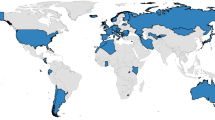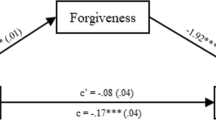Abstract
The spread of rumors has often been linked to major social and political impacts with consequences that oftentimes may prove to be severe. While there are multiple factors that could make a rumor more believable, this paper focuses on investigating the effects of personality traits on believing or disbelieving rumors. Participants were given a survey which included rumors relating to a single topic, COVID-19, to avoid topic-bias. Participants were also given a personality test which assessed the participants’ traits based on the Big 5 Model and categorized them as high or low. The effect of valence (pleasure) and arousal (excitement) on believing or disbelieving rumors was also explored, along with how this effect differs from one trait to another. The results showed that people with high agreeableness tend to believe rumors more than people with low agreeableness and that there was a correlation between valence and believing rumors for people with high neuroticism and people with low agreeableness. No correlation was found between arousal and believing rumors for any of the personality traits.
Access this chapter
Tax calculation will be finalised at checkout
Purchases are for personal use only
Similar content being viewed by others
References
Shi Liao, L.: She gets a sports car from our donation: rumor transmission. In: A Chinese Microblogging Community. 2013 Conference on Computer Supported Cooperative Work, ACM (2013)
Hosni, A.I.E., Li, K.: Minimizing the influence of rumors during breaking news events in online social networks. Knowl. Based Syst. 193, 105452 (2020)
Nourbakhsh, A., Liu, X., Shah, S., Fang, R., Ghassemi, M., Li, Q.: Newsworthy rumor events: a case study of Twitter 11 (2015)
Chua, A., Aricat, R., Goh, D.: Message content in the life of rumors: comparing three rumor types. In: 2017 Twelfth International Conference on Digital Information Management (ICDIM), pp. 263–268 (2017)
Berinsky, A.J.: Rumors, truths, and reality: a study of political misinformation. Massachusetts Institute of Technology Department of Political Science (2012)
Schwarz, N., Sanna, L.J., Skurnik, I., Yoon, C.: Metacognitive experiences and the intricacies of setting people straight: implications for debiasing and public information campaigns. Adv. Exp. Soc. Psychol. 39, 127–161 (2007)
Michel, M., Soueidan, A. Elmougy, A.: Analyzing the effect of buzz users on rumors’ lifetimes (2020)
Rath, B., Gao, W., Ma, J., Srivastava, J.: From retweet to believability: utilizing trust to identify rumor spreaders on Twitter. In Proceedings of the 2017 IEEE/ACM International Conference on Advances in Social Networks Analysis and Mining 2017, ASONAM 2017, pp. 179–186. NY, USA (2017)
Lucy, J.A.: Linguistic relativity. Ann. Rev. Anthropol. 26, 291–312 (1997)
He, L., Yang, H., Xiling, X., Lai, K.: Online rumor transmission among younger and older adults. SAGE Open 9, 7 (2019)
Chua, A.Y., Banerjee, S.: Intentions to trust and share online health rumors: an experiment with medical professionals. Comput. Hum. Behav. 87, 1–9 (2018)
Grinberg, N., Joseph, K., Friedland, L., Swire-Thompson, B., Lazer, D.: Fake news on twitter during the 2016 US Presidential election. Science 363, 374–378 (2019)
Chen, X., Sin, S.J.: Misinformation? What of it? Motivations and individual differences in misinformation sharing on social media. In: Proceedings of the American Society for Information Science and Technology, vol. 50, no. 1, pp. 1–4 (2013)
Matthews G., Deary I.J., Whiteman M.C.: Personality traits, third edition. personality traits, Third Edition, pp. 1–568 (2009)
McCrae, R.R.: The five-factor model of personality traits: consensus and controversy. In: Corr, P.J., Matthews, G. (eds.) The Cambridge handbook of personality psychology, pp. 148–161. Cambridge University Press, Cambridge (2009)
Rammstedt, B., John, O.P.: Measuring personality in one minute or less: a 10-item short version of the big five inventory in English and German. J. Res. Pers. 41(1), 203–212 (2007)
Alkhodair, S.A., Ding, S.H.H., Fung, B.C.M., Liu, J.: Detecting breaking news rumors of emerging topics in social media. Inf. Process. Manage. 57(2), 102018 (2020)
Bora, K., Das, D., Barman, B., Borah, P.: Are internet videos useful sources of information during global public health emergencies? A case study of Youtube videos during the 2015–16 zika virus pandemic. Pathog. Glob. Health 112(6), 320–328 (2018)
Oi-Yee Li, H., Bailey, A., Huynh, D., Chan, J.: YouTube as a source of information on COVID-19: a pandemic of misinformation? BMJ Glob. Health 5, e002604 (2020)
Sharma, M., Yadav, K., Yadav, N., Ferdinand, K.C.: Zika virus pandemic - analysis of Facebook as a social media health information platform. Am. J. Infect. Control 45(3), 301–302 (2017)
Broniatowski, D.A., et al.: Weaponized health communication: Twitter bots and Russian trolls amplify the vaccine debate. Am. J. Pub. Health 108(10), 1378–1384 (2018)
Ortiz-Martínez, Y., Jiménez-Arcia, L.: Yellow fever outbreaks and Twitter: rumours and misinformation. Am. J. Infect. Control 45, 815–816 (2017)
Kouzy, R., et al.: Coronavirus goes viral: quantifying the COVID-19 misinformation epidemic on Twitter. Cureus 12(3), e7255 (2020)
Heinstrom, J.: Five personality dimensions and their influence on information behaviour. Inf. Res. 9, 9-1 (2003)
Amnieh, I.G., Kaedi, M.: Using estimated personality of social network members for finding influential nodes in viral marketing. Cybern. Syst. 46, 355–378 (2015)
Hamburger, Y.A., Ben-Artzi, E.: The relationship between extraversion and neuroticism and the different uses of the internet. Comput. Hum. Behav. 16, 441–449 (2000)
Amiel, T., Sargent, S.L.: Individual differences in internet usage motives. Comput. Hum. Behav. 20(6), 711–726 (2004)
Ryan, T., Xenos, S.: Who uses Facebook? An investigation into the relationship between the big five, shyness, narcissism, loneliness, and Facebook usage. Comput. Hum. Behav. 27, 1658–1664 (2011)
Lang, P.J., Bradley, M.M.: Measuring emotion: the self-assessment manikin and the semantic differential. Behav. Ther. Exp. Psychiatry 25, 49–59 (1994)
Suci, G., Tannenbaum, C.: The Measurement of Meaning. University of Illinois, Urbana (1957)
Author information
Authors and Affiliations
Corresponding author
Editor information
Editors and Affiliations
Rights and permissions
Copyright information
© 2022 The Author(s), under exclusive license to Springer Nature Switzerland AG
About this paper
Cite this paper
Ibrahim, N., Elzayany, M., Elmougy, A. (2022). The Effects of Personality Traits on Rumors. In: González-Briones, A., et al. Highlights in Practical Applications of Agents, Multi-Agent Systems, and Complex Systems Simulation. The PAAMS Collection. PAAMS 2022. Communications in Computer and Information Science, vol 1678. Springer, Cham. https://doi.org/10.1007/978-3-031-18697-4_15
Download citation
DOI: https://doi.org/10.1007/978-3-031-18697-4_15
Published:
Publisher Name: Springer, Cham
Print ISBN: 978-3-031-18696-7
Online ISBN: 978-3-031-18697-4
eBook Packages: Computer ScienceComputer Science (R0)




